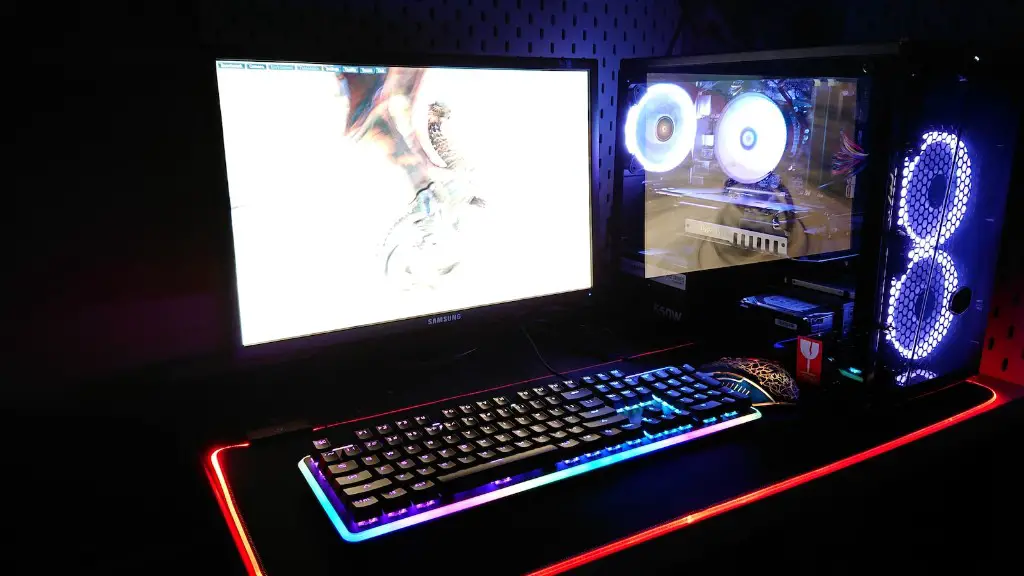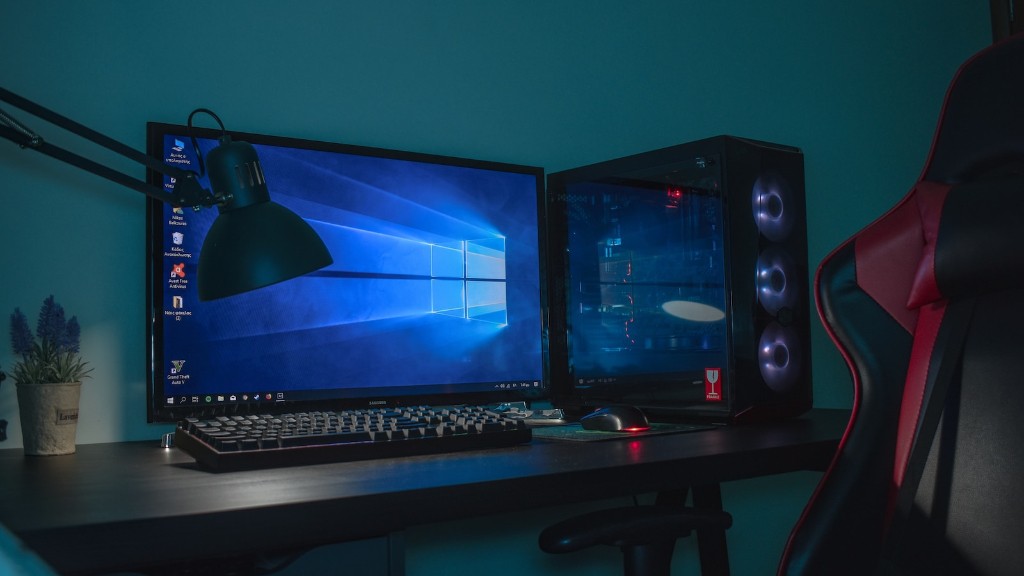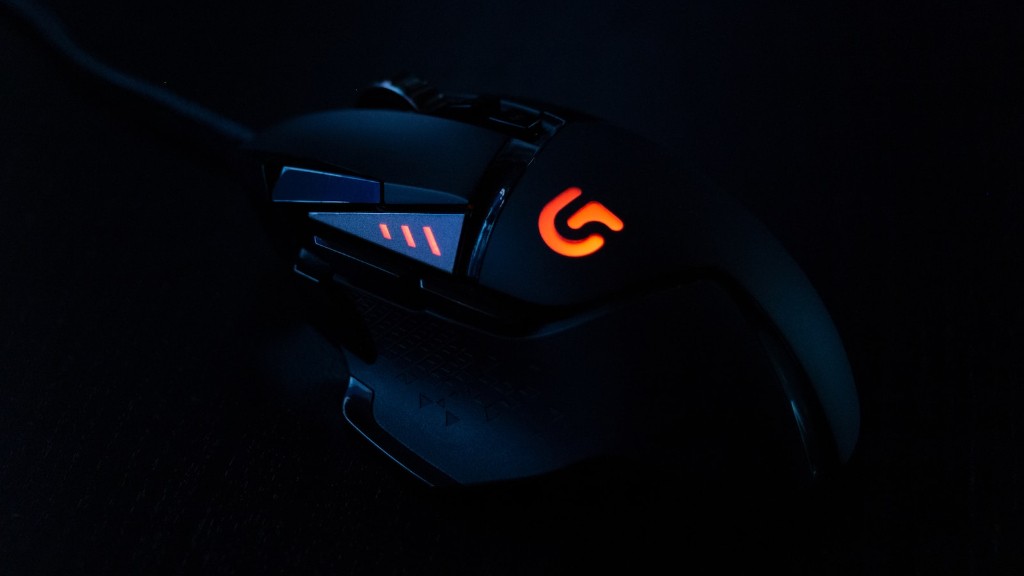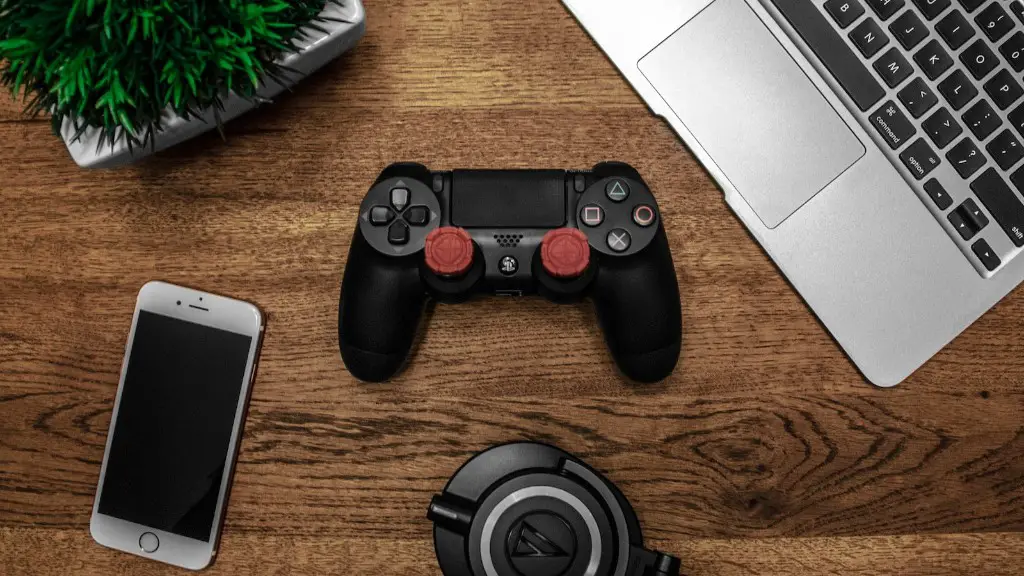When it comes to gaming, having a gaming PC allows for better graphics, performance, and customizability than any standard gaming console. But what exactly comprises a gaming PC? In this article, we will delve into all the components of a gaming PC and review the suite of hardware that make up the gaming powerhouse.
The Central Processing Unit (CPU) is the essential backbone of the PC. The CPU allows the PC to interpret and process instructions, thus controlling the overall functioning of the system. Most gaming PCs utilize a higher-end CPU, ensuring that the PC has enough power to run high-end video games. This may include processors such as the Intel Core i9 or AMD Ryzen 9.
The Graphics Processing Unit (GPU) is another key component of the gaming PC. The GPU is responsible for how the game looks and how well it runs. Since 3D gaming requires so much computing power, dedicated graphics cards are usually included in a gaming PC. It is important to buy a GPU with enough power to run your desired games; many gamers opt for Nvidia GeForce RTX or AMD Radeon RX.
RAM (Random Access Memory) is used to store data that the CPU and GPU need for quick access. Like CPU and GPU, the amount of RAM is one of the biggest determining factors in how smoothly a game runs. Most gaming PCs come with 8-16GB of RAM which is enough to run any game currently available.
Finally, the storage solutions of a gaming PC must be considered. Solid-state drives are excellent choices, as they provide superior storage speed over traditional hard drives. While they may cost more, they last longer and are well worth the investment. Keeping the gaming PC’s data stored on an SSD helps make sure the entire system runs at its best.
Networking
To ensure your gaming PC is ready for the internet, networking components are also necessary. This can include a modem, router, or a switch which helps communicate data over the network. While most gaming PCs come with wireless capabilities, it is recommended to use a wired connection if possible. This will provide a better signal and reduce latency, improving gaming performance.
Besides these components, there are a few supporting factors to consider when putting together a gaming PC. Power supplies and cooling solutions, for example, are important for making sure all the components don’t overheat during intensive gaming. Furthermore, a suitable casing ensures the components are safe from dust and other contaminants.
Customization
One of the greatest benefits of having a gaming PC is its ability to be customized. While there are many prebuilt PCs available, creating your own custom setup can be more cost-efficient and provide better control over the quality and performance of your components. Customizing can go beyond the hardware components, as a gaming PC may have additional software like gaming drivers and game capturing software.
When building a PC, it is essential to research the different components and assess whether they are compatible with each other. This can include checking whether the motherboard and processor share a similar socket or if the RAM and GPU are compatible with the motherboard. Additionally, gamers may choose to add additional components for features such as liquid cooling and overclocking, as long as the parts are compatible and suitable for the overall build.
Upgrades
Once you have built the right gaming PC, you have the chance to upgrade it. Upgrading can help you stay ahead of the curve in terms of gaming performance and visual quality. This includes swapping out old components such as CPUs and GPUs in exchange for the most up-to-date models. This can improve the overall gaming experience and future-proof your PC.
On the other hand, some components don’t need to be upgraded as often. Keyboards and mice, for example, may only need to be replaced when their built quality starts to show signs of wear. Monitors, on the other hand, are also important for gaming, but depending on the usage, may not need to be upgraded as often.
Repairs
Just like any other electronic device, a gaming PC may encounter issues. This can include hardware damage such as a broken GPU or system errors like a faulty hard drive. In such cases, it is essential to seek professional help, as fixes may require technical knowledge. A certified technician can help diagnose the issue and fix it accordingly, thus restoring your gaming PC.
When bringing your PC in for repairs, make sure to back up your data to an external storage device. This will help keep your important files safe and ensure they don’t get lost when you’re having issues with the system. For major issues, the technician may have to switch out a few components, thus it is best to double-check what is covered in the warranty.
Maintenance
It is important to take care of your gaming PC and keep it running at its best. Part of the maintenance process is cleaning the components and making sure the fan systems are working correctly. This will help reduce dust build-up inside the system and prevent components from overheating. It is also important to keep your system updated; for instance, updating the drivers for the GPU and other components will make sure the system works properly.
Regular check-ups and maintenance can help you stay on top of any potential issues and ensure that your gaming PC is running optimally. Furthermore, it will help reduce the risk of needing costly repairs due to hardware failure or damage. If you ever feel uncomfortable with any issue that arises with the PC, it is best to seek professional help as soon as possible.



